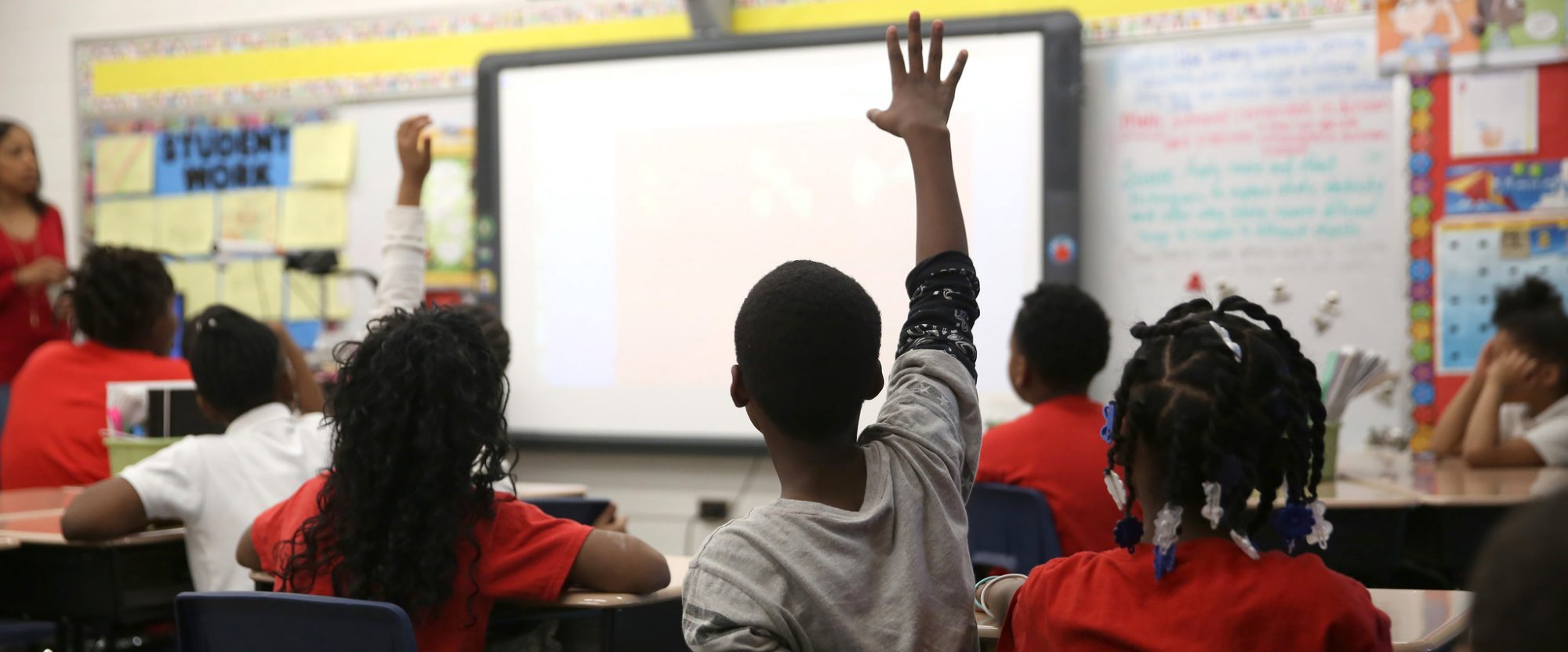I feel that this course has opened my eyes to a whole new way of looking at education and the many opportunities it holds for students, along with its pitfalls, across the United States. Before this class, I feel as if I was blind to all that was happening in the world of education. I grew up on an island with a predominantly white year-round population of 10,000, with one elementary, one middle, and one high school. I didn’t know what it meant to suffer from a lack of resources and low teacher retention rates, or to worry about zero-tolerance policies and heavy police involvement in schools (at least half of our police force is also involved in coaching high school sports). School closures, in my mind, didn’t exist.
In learning about the issues that were appearing frequently in urban schools across the United States, I went through a three-stage process of thought: first, realization, second, frustration, and third, hope. I welcome you to come along as I describe my self-proclaimed journey through Urban Education.
Realization. As noted above, in high school, I didn’t have to worry about my access to a quality education. Through this class, I have realized that my old mindset was a privilege, which arose from where I grew up, where my parents worked, and many other factors that were simply out of my control. It was difficult to learn about the ways in which public education, in many parts of this country, are not meeting the needs of all of its students. I am privileged to receive a secure and solid public education, and it is disheartening to now see how many children are not given the opportunity to experience the same. It is this awareness that has allowed me to feel even more grateful for the inherent privilege that comes from my ability to attend Bowdoin. To receive an incredible higher education experience, and to be surrounded by other students who are just as passionate about learning as I am, has been, in my mind, priceless. Recognizing how lucky I am to be here has given me a new perspective on the ways in which I spend my time here.
Frustration. Throughout this course, my newfound awareness has repeatedly taken sharp turns towards frustration. How do we fix these issues? Why are school boards and government officials making decisions about these issues without input from those actually affected? How do we ensure equal educational opportunities for all students, regardless of race and socioeconomic background? And, how do we accomplish that in our current political climate and with our current sitting president (for now)? I will admit, at times, I have lost sight of the light at the end of the tunnel. When, as a class, we brainstormed questions for our skype call with Edwin Mayorga, I wrote down: with all of the obstacles that urban schools face, how do we not lose hope? I cannot remember his exact response, but when someone asked Edwin this question, he brought up the importance of recognizing the efforts of grassroots organizations and other communities in improving conditions for their students. At the time, this answer, while eloquent, was not satisfying enough for me. Looking at these organizations who are fighting for school funding, or against school closings, and losing those fights, was disheartening. If progress moves so slowly that everything seems to remain stagnant, how can we get anything done?
Hope. One word with four letters, and the power to inspire great things. Yet, as a self-proclaimed pessimist, I have had trouble finding hope. Researching grassroots organizations for this project, I knew that each one was making a difference in its community, but I didn’t know how. Before completing this project, I was preoccupied with the scale of their impacts. Now, I feel that I have learned to appreciate the idea that, no matter how large or how small, a movement’s effect on each and every individual involved is the most important. In the words of Ella Baker, “how many people show up for a rally may matter less than how much the people who organize the rally learn from doing so.”
I have worked hard to apply this philosophy to different aspects of my life. Most recently, I have been trying to get a mentor program FFLY, which stands for Fostering Female Leadership in Youth, off the ground in Brunswick High School. Working with one of the Brunswick guidance counselors, brainstorming ways to market to high school students, and thinking of different girls who would benefit from the program, I have, at times, felt discouraged. I have often asked myself: What if nobody shows up? What if girls aren’t interested? What if I’m not making a difference? Especially in the U.S., where it seems as if the key to success is to be constantly moving, I’ve worried about how slow this process of starting a new mentor program has gone thus far. When I find myself in this negative headspace, I’ve tried to step back and look at the big picture. To remember that even if only one girl shows up, if she finds empowerment in our program, and creates individual relationships with all of our mentors, that is a success. Through learning about the efforts, successes, and failures, of grassroots organizing groups across the country, I feel that I have learned to have the most important thing:
Hope.
